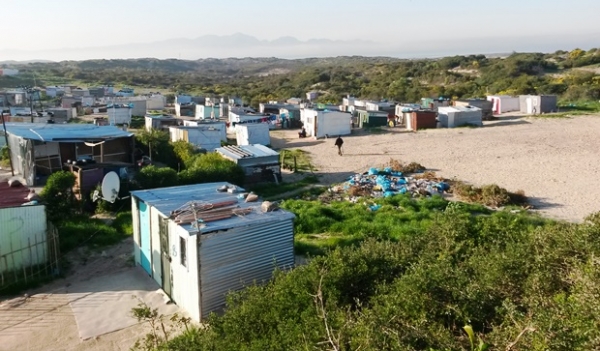
The court has ruled in favour of Newcastle residents threatened with eviction. Photo: Barbara Maregele
10 March 2016
The City of Cape Town has lost its application for leave to appeal the suspension of an eviction order against residents of the Newcastle Informal Settlement in Khayelitsha.
The Western Cape High Court again ruled in favour of the community on Wednesday, and ordered the City to pay the costs of the hearing.
Residents have been living on land situated behind the Endlovini Informal Settlement since May 2014.
On 14 December, Acting Judge Lister Nuku temporarily suspended the eviction order granted in 2014 by Western Cape High Court Judge Thandazwa Ndita. (See Khayelitsha residents challenge eviction in court.)
Residents had argued that the City had not complied with the Prevention of Illegal Eviction from and Unlawful Occupation of Land Act.
Nuku found the City had failed to “reasonably engage” with Newcastle’s residents before obtaining the eviction order granted by Ndita.
The lawyer representing the group of residents, Ashraf Mahomed, said the City had been ordered to engage with the community and to report back to the court by September.
Residents move onto the land around May 2014.
City of Cape Town goes to court to evict the group of residents July/August 2014.
City is granted an eviction order by High Court Judge Ndita in August 2014.
Residents refuse to move and seek legal advice in early 2015.
Advocates representing the residents file papers in July 2015 opposing the eviction and challenging the City’s compliance with the law.
This case is to be heard on 26 August 2015, but both parties agree to postpone for the City to file its papers.
Judge Babalwa Mantame then orders the City to “re-serve” the eviction notice in September 2015 as stated in the initial eviction order granted in 2014.
Judgment by Acting Judge Lister Nuku is handed down on 14 December 2015 in the High Court.
The City of Cape Town applies for leave to appeal to the Supreme Court of Appeal.
City loses its application to appeal in March 2016 and is ordered to engage with Newcastle residents.